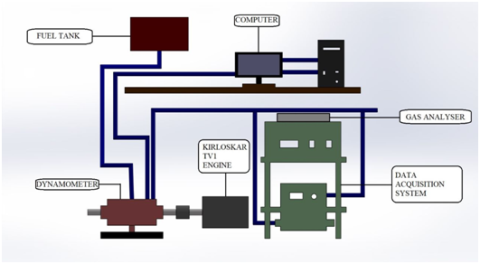You are here
Extraction, performance and emission characterization of diesel engine using waste lipolytic microorganism biodiesel

In this study, milk waste water will be extracted, transformed into Lipolytic microorganism’s biodiesel (LMD) using transesterification, and tested for appropriateness as an alternative, sustainable, renewable source for IC engines. The properties of the created blends of biodiesel were investigated and compared to those of conventional diesel. The outcomes demonstrated that the fuel's fundamental characteristics are discussed with neat diesel. Investigated are the operation, combustion, and exhaust gas analysis of a test engine running on LMD. The studies involve running different biodiesel-diesel blends (B10, B20, B30, B40, B50, and B80) at varying loads (0, 25, 50, 75, and 100%) in a single-cylinder direct-injection diesel engine at a constant speed and comparing the results to the benchmark diesel. The values of break thermal efficiency(BTE) was decreased by 0.59, 0.68, 1.30 and 2.98% respectively for the blends of 10, 20, 30 and 50% of biodiesel mixing. The brake specific energy consumption (BSEC) is decreased by 0.1, 0.3, 0.44, and 0.77%. Any biodiesel-diesel combination reduces exhaust gas pollutants. At maximum load, the values of emissions like CO, HC, and smoke opacities of B30 decreased by 12.1%,3.94%, and 11% when compared to standard diesel. However, as per the analysis biodiesel of LMD is a potential alternative fuel that doesn't require significant alterations to be used in I.C engines.
